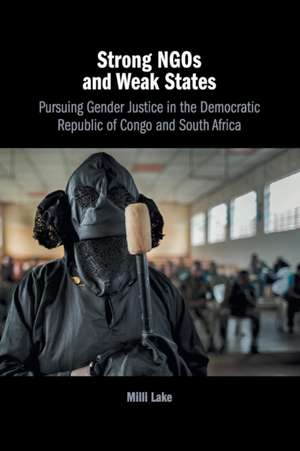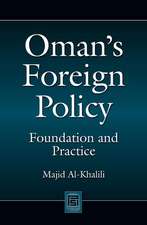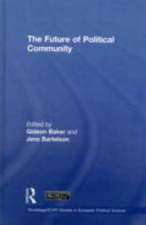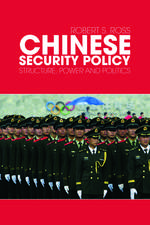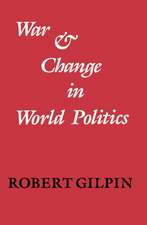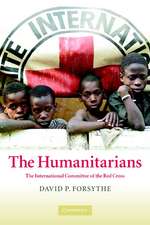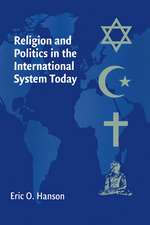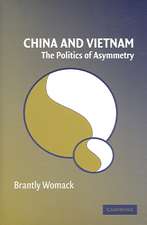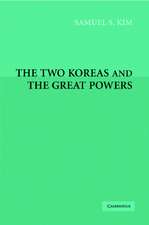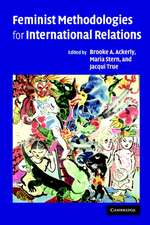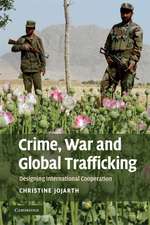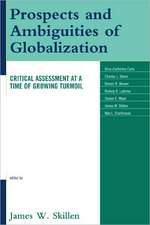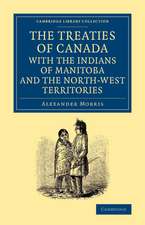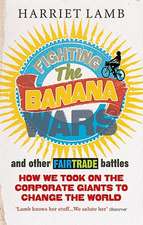Strong NGOs and Weak States: Pursuing Gender Justice in the Democratic Republic of Congo and South Africa
Autor Milli Lakeen Limba Engleză Paperback – 22 mai 2019
| Toate formatele și edițiile | Preț | Express |
|---|---|---|
| Paperback (1) | 281.33 lei 6-8 săpt. | |
| Cambridge University Press – 22 mai 2019 | 281.33 lei 6-8 săpt. | |
| Hardback (1) | 682.71 lei 6-8 săpt. | |
| Cambridge University Press – 30 mai 2018 | 682.71 lei 6-8 săpt. |
Preț: 281.33 lei
Nou
Puncte Express: 422
Preț estimativ în valută:
53.85€ • 55.97$ • 44.60£
53.85€ • 55.97$ • 44.60£
Carte tipărită la comandă
Livrare economică 05-19 februarie 25
Preluare comenzi: 021 569.72.76
Specificații
ISBN-13: 9781108410588
ISBN-10: 1108410588
Pagini: 323
Ilustrații: 5 b/w illus. 2 maps 1 table
Dimensiuni: 153 x 230 x 20 mm
Greutate: 0.44 kg
Editura: Cambridge University Press
Colecția Cambridge University Press
Locul publicării:Cambridge, United Kingdom
ISBN-10: 1108410588
Pagini: 323
Ilustrații: 5 b/w illus. 2 maps 1 table
Dimensiuni: 153 x 230 x 20 mm
Greutate: 0.44 kg
Editura: Cambridge University Press
Colecția Cambridge University Press
Locul publicării:Cambridge, United Kingdom
Cuprins
1. Law in unforeseen places; 2. Researching violence and law in South Africa's Western Cape and DR Congo's Eastern provinces; 3. Explaining state-level policy and practice; 4. Local justice institutions and opportunities created by state fragility; 5. Ordinary women in court: socialization and outreach from the ground up; 6. Hard fought victories: assessing the human rights benefits felt by victims of violence in DR Congo; 7. Justice for who? The unintended consequences of hard fought victories; 8. Conclusion: NGOs and state (un)making; Appendix A: decisions in the field; Appendix B: interviews with victims of gender violence; Appendix C: DR Congo's criminal justice system; Appendix D: South Africa's criminal justice system.
Recenzii
'In her meticulously researched book, Milli Lake illuminates a difficult topic with both rigor and compassion, questioning many preconceptions about justice and gender based violence in some of the world's most challenged courts.' Kathryn Sikkink, Ryan Family Professor, Kennedy School of Government, Harvard University, Massachusetts
'Milli Lake's book counterintuitively demonstrates that precisely the lack of state presence in the eastern Democratic Republic of Congo - a quintessential failed state - enabled courts backed by strong NGOs to tackle gender crimes. In contrast, strong states such as South Africa do not necessarily promote justice for victims of sexual and gender-based violence. Thus, Lake presents a very convincing case that areas of limited statehood can actually be well governed, while statehood as such is no panacea for justice. A must read for anybody interested in the governability of failed and fragile states!' Thomas Risse, Freie Universität Berlin, Germany
'Journalists and politicians often call Congo the 'rape capital of the world'. Milli Lake develops a fascinating, original, theoretically-rich, and nuanced analysis of this controversial issue. She goes beyond the clichés to reveal how, in contrast to South Africa, human rights activists in Congo have been strikingly innovative, and local courts surprisingly progressive, despite the tremendous challenges they face in their day-to-day work.' Séverine Autesserre, author of Peaceland and The Trouble with the Congo
'This is a book that should be read by many: area experts and ethnographers, feminist and queer scholars, global sociologists, political scientists with a comparative politics and IR focus, policy makers and development aid practitioners, legal scholars, and criminologists with international and human rights interests.' Randi Solhjell, Forum for Development Studies
'Milli Lake's book counterintuitively demonstrates that precisely the lack of state presence in the eastern Democratic Republic of Congo - a quintessential failed state - enabled courts backed by strong NGOs to tackle gender crimes. In contrast, strong states such as South Africa do not necessarily promote justice for victims of sexual and gender-based violence. Thus, Lake presents a very convincing case that areas of limited statehood can actually be well governed, while statehood as such is no panacea for justice. A must read for anybody interested in the governability of failed and fragile states!' Thomas Risse, Freie Universität Berlin, Germany
'Journalists and politicians often call Congo the 'rape capital of the world'. Milli Lake develops a fascinating, original, theoretically-rich, and nuanced analysis of this controversial issue. She goes beyond the clichés to reveal how, in contrast to South Africa, human rights activists in Congo have been strikingly innovative, and local courts surprisingly progressive, despite the tremendous challenges they face in their day-to-day work.' Séverine Autesserre, author of Peaceland and The Trouble with the Congo
'This is a book that should be read by many: area experts and ethnographers, feminist and queer scholars, global sociologists, political scientists with a comparative politics and IR focus, policy makers and development aid practitioners, legal scholars, and criminologists with international and human rights interests.' Randi Solhjell, Forum for Development Studies
Notă biografică
Descriere
Offers evidence that opportunity structures created by state weakness can allow NGOs to exert unparalleled influence over local human rights law and practice.
